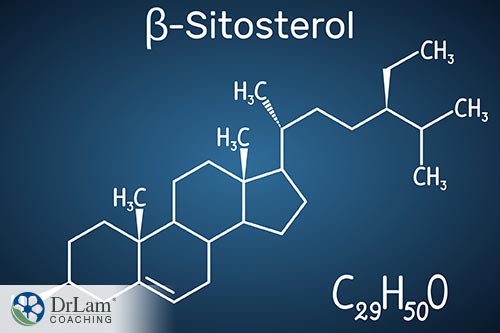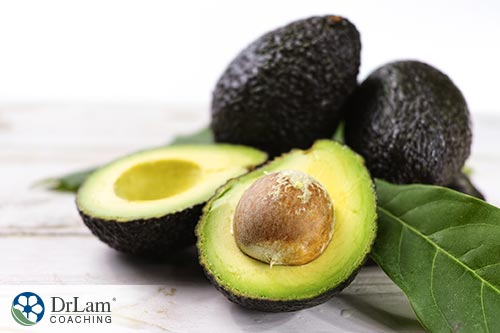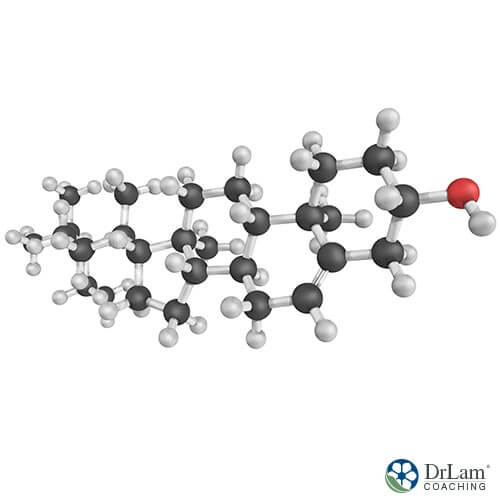If you’re like most people, then you had probably never heard of beta-sitosterol until quite recently. But you probably eat this substance every day. It’s also used in a number of different medications. And although research does not support using it for everything it's advertised for, it could help a few health conditions. If you have certain issues like high cholesterol levels or an enlarged prostate, then it’s worth learning more about this substance and how it may benefit your health.
 Beta-sitosterol is found in vegetables, nuts, fruits, and seeds. It’s often called a "plant sterol ester" and it’s used in a number of different medications.
Beta-sitosterol is found in vegetables, nuts, fruits, and seeds. It’s often called a "plant sterol ester" and it’s used in a number of different medications.
This substance is a phytosterol, which means that it’s similar in structure to cholesterol. This is why studies show that it may reduce levels of bad cholesterol by limiting the amount of cholesterol that is able to absorb into your body. This suggests that it may be a safe and natural way to lower your risk of heart disease
This substance can also bind to the prostate and help control swelling. This may reduce the symptoms of an enlarged prostate caused by benign prostatic hyperplasia or BPH.
The richest sources of beta-sitosterol are vegetable oils and products made with the oils. However, this substance can also be taken in supplement form and is found in some kinds of margarine that are designed to help lower your cholesterol.
Testing on beta-sitosterol is still ongoing, but it’s used in some alternative medicine circles for everything from gallstones to migraines and asthma. There is little evidence that this substance will help with any of these conditions. However, some studies suggest that it may help with:
Beta-sitosterol competes with cholesterol for absorption in the intestines. This means it may help reduce your LDL cholesterol levels and atherosclerosis, the buildup of cholesterol in your arteries that causes them to harden. This may lower your risk of cardiovascular disease.
Studies have shown that eating around 2 grams of phytosterols a day can reduce your cholesterols levels by up to 10 percent. However, there is limited evidence for this strategy, so you should keep taking cholesterol medications and continue making other lifestyle changes to reduce your cardiovascular risk along with these supplements.
Beta-sitosterol may help reducing swelling caused by BPH. This is why it may be used in concert with other medications to help reduce decreased urinary flow. However, the safety and efficacy of using these kinds of remedies haven’t been proven.
The evidence on the ability of beta-sitosterol to help cancer is very limited. And you should never use complementary therapies as a substitute for more conventional cancer therapies. However, some test-tube studies have suggested that this substance may inhibit the growth of human colon cancer cells and promote breast cancer cell death. This may indicate a pathway for cancer therapies in the future. However, it’s not a substitute for conventional cancer therapies.
This substance has become very popular in alternative therapies recently. However, the evidence supporting the use of this substance for certain conditions is sparse or non-existent. For example, taking this substance doesn’t help alleviate tuberculosis more quickly than conventional treatments. It also doesn’t help with gallstones.
Other conditions that this substance is used for in alternative therapies without sufficient evidence for its efficacy are:
This doesn't mean that you should never try to alleviate or eliminate these conditions with anything other than conventional medicine strategies. However, it is important to stick with methods that research has supported to ensure that you aren't wasting money at best, or causing unexpected side effects or worsening your health.
Unfortunately, the research on beta-sitosterol does not currently support its use for these conditions.
Beta-sitosterol is generally fairly safe. However, you should refrain from taking it if you’re pregnant or breastfeeding, just to be on the safe side. This substance is also not safe for people who have sitosterolemia, a rare condition that causes fat storage problems.
This substance may also interact with certain medications, so talk to your doctor before taking it.
For everyone else, this substance should be safe when taken by mouth, though it is associated with mild side effects such as:
Less commonly, it has also been linked to acne, low libido, and erectile dysfunction. There are no reports of side effects when this substance is applied to the skin.
Beta-sitosterol can be taken in food or in supplement form. However, it’s usually best to get all the nutrients you need from your diet. Some of the foods that are highest in this substance are:

However, if you’re still struggling to control your cholesterol levels, then talk to your doctor about whether supplements could help.
You can find this substance in supplements in doses ranging from 60 to 500mg, but studies have safely used doses as high as 800mg a day. Talk to your doctor about the right dose for you.
Adrenal fatigue is a stress-related condition that can lead to heart issues, such as high cholesterol, as well as many other symptoms. There’s a lot of confusion about the symptoms of this condition, primarily because it is complex and not well understood in the medical establishment.
Adrenal Fatigue Syndrome (AFS) is caused by chronic stress that forces the ongoing activation of the NeuroEndoMetabolic (NEM) stress response. This stress response activates when you’re stressed. This short-term response is often active on an ongoing basis in the modern world because of stressors like poor diets, busy lifestyles, and work pressures. This causes the adrenals to struggle to produce the cortisol that is the driver of the NEM stress response.
The circuits, which consist of sets of related organs and systems, in the NEM stress response also change their function to prepare you to respond to a threat. When they remain in this state for too long, though, many of their essential rest and repair duties go ignored, and the body becomes unbalanced and unhealthy.
The key to alleviating AFS is to relieve stress and help the body find balance naturally. This means addressing both the overlying symptoms of AFS and the underlying imbalances and malfunctions that are causing them. Here’s how beta-sitosterol can help with that:
Cardiac symptoms such as high blood pressure, high cholesterol, and palpitations are common and frightening symptoms of AFS. If beta-sitosterol can help lower cholesterol, it could help improve cardiac health in people with AFS and lower the risk of long-term damage.
Beta-sitosterol could also help eliminate the need for harsh cholesterol medications, which can be dangerous even when you’re healthy. When you have AFS, you’re more likely to have side effects or paradoxical reactions to medications because of the weakness and oversensitivity of your body. That’s why avoiding these medications where possible can be a helpful recovery strategy.
However, if your cholesterol is high, it’s also important that you listen to your doctor and take the approved medications. This could literally help save your life one day. Make sure to talk to your doctor about whether beta-sitosterol could help before taking it.
If you decide to get more beta-sitosterol through your diet, then it naturally means that you'll be eating more vegetables and healthy fats. This could be very beneficial for your health and AFS overall.
AFS is strongly linked to an inadequate diet, with deficiencies and unhealthy foods causing stress for your body and your adrenal glands. In this sense, eating more of the healthy foods that contain beta-sitosterol can help give your body more of the nutrients it needs to function correctly.
Beta-sitosterol is a plant-based substance that could have a number of health benefits, although many anecdotal uses are not evidence-supported. Used correctly, it may help address specific health complaints without side effects, including high cholesterol and prostate enlargement. Here’s how to safely introduce this substance to your diet:

For more strategies to manage specific health complaints and concerns, talk to our team on +1 (626) 571-1234 or click here.
Beta-Sitosterol is a plant-based substance that can be found in fruits, vegetables, seeds, and vegetable oils. It’s chemically similar to cholesterol, which is why it may naturally, gently, and safely help lower the amount of bad cholesterol in your body. Research also supports its use for men with prostate enlargement.
